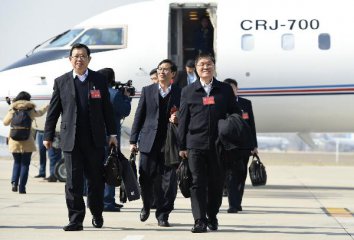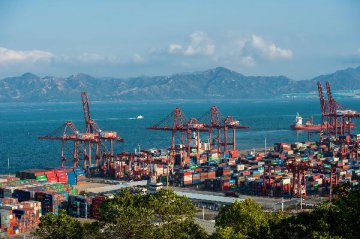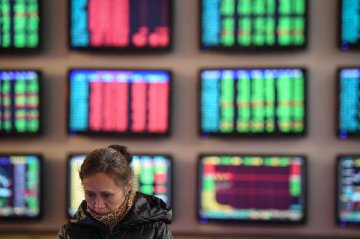
The upcoming annual sessions of China's top legislative and national advisory body will be closely watched overseas thanks to their agenda, particularly China's five-year development blueprint and how it could impact the world economy, experts say.
The two sessions, set to open on Saturday and last for two weeks, will provide an opportunity for the rest of the world to learn about the state of China's economy, its priorities for the year and longer-term development plans. The annual meetings of the National People's Congress and Chinese People's Political Consultative Conference have always had global relevance. But this year, the sessions are attracting even greater attention worldwide as the year 2016 marks the start of China's 13th Five Year Plan, which focuses on transforming the country's development mode, economic reforms, promoting the rule of law and improving living standards.
U.S. Treasury Undersecretary for International Affairs Nathan Sheets wrote in an opinion piece: "We continue to believe that if China implements the market-based economic reforms it has committed to, it has the necessary tools to support domestic demand and succeed in this economic transition." China watchers believe the economic transformation set to take place over the next five years would allow China to solidify its status as a driver of global demand.
It will also offer the best formula for China to achieve an orderly transition and put its economy on a more sustainable footing for healthy growth in the future, they say. Meanwhile, the chief of the International Monetary Fund Christine Lagarde has urged other countries to implement structural reforms along with China to strengthen the world economy.
Lagarde also hoped China would move through its economic transition "at the right pace" for the sake of global financial stability. Policy decisions will be made during the two sessions to chart the course for China's economic development in the next five years. Sheets said the United States would like China's transition to be a success because it too would ultimately benefit.
The "New Normal" of China's economy, which encourages moderate and balanced development, has also piqued the interest of other experts overseas. In an interview with Xinhua, Dr. Pierre Picard, a China expert at University of Paris VIII, said, "It is a real economy, with more respect to the people and the environment, which is more open and impartial, bringing challenges and innovation to society, science and technology." Changes will unfold in urbanization, upgrading industry, the cyber economy, the blue economy and so on, which could "help boost domestic demand and form new growth points for the national economy," said Huang Bin, China Research Institute Director of Kasikorn Research Center in Thailand. Besides economic restructuring, cooperating with China on the Belt and Road Initiative has also nabbed global attention.
Egyptian Trade Union Director Mohamed Youssef highlighted the great opportunity for the countries of the Middle East and Africa to join hands with China in the building of the new Silk Road. "Virgin land still exists in these areas, which needs corporate development from both China and local populations," said Youssef. He outlined the potential for bilateral collaboration between these countries and China and sees cooperation strengthening after the two sessions.
Prof. Martinez of the National Autonomous University of Mexico praised China's contributions to reducing extreme poverty and improving infrastructure in Africa and Latin America. "China has been playing an important role on the world stage," he said. "It's an energetic country with hope and has more and more influence on the globe."





















Latest comments